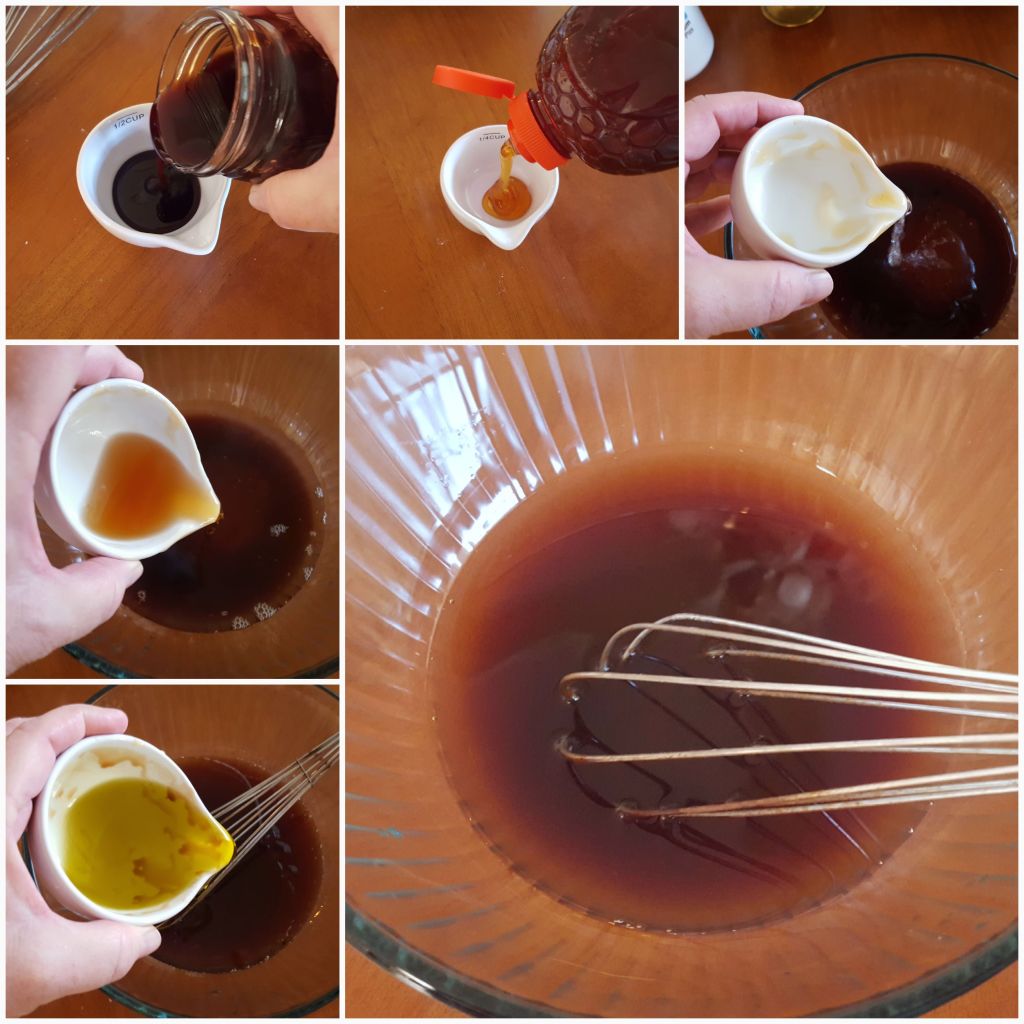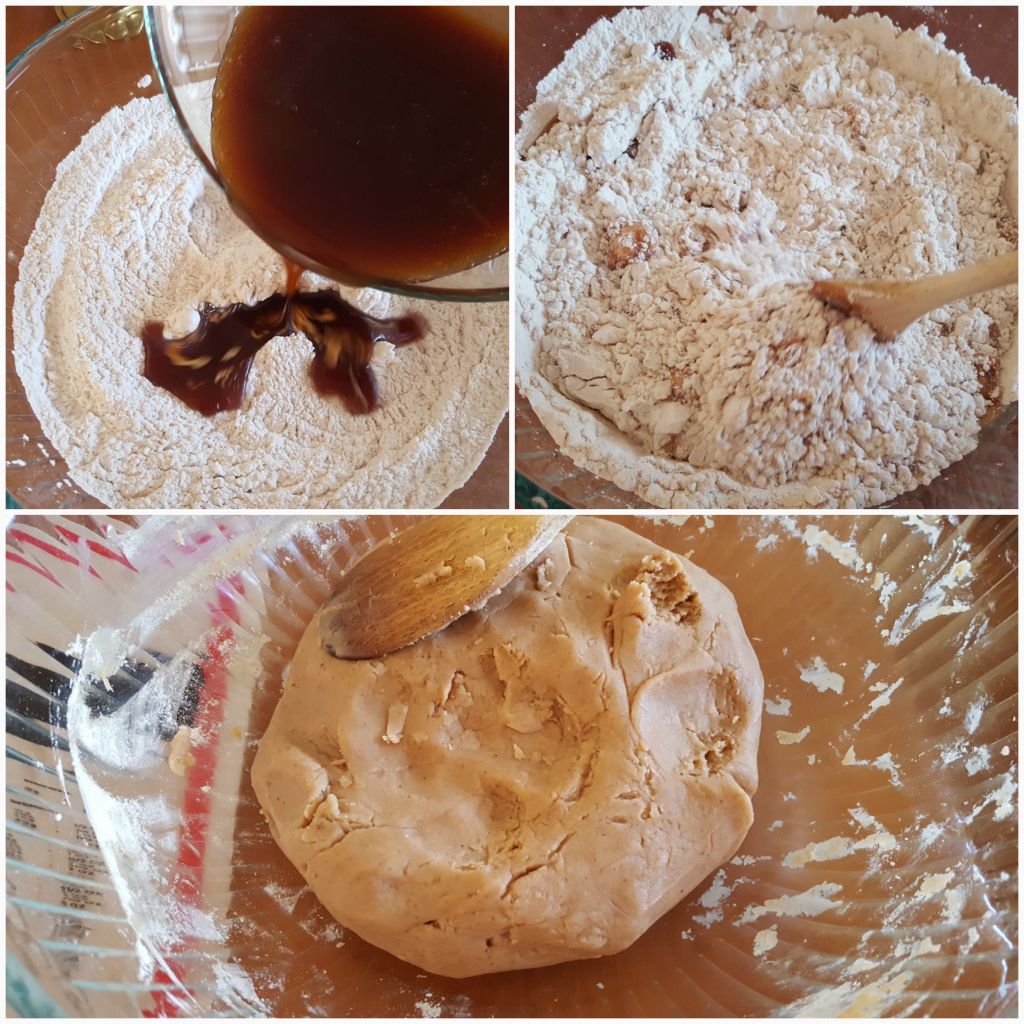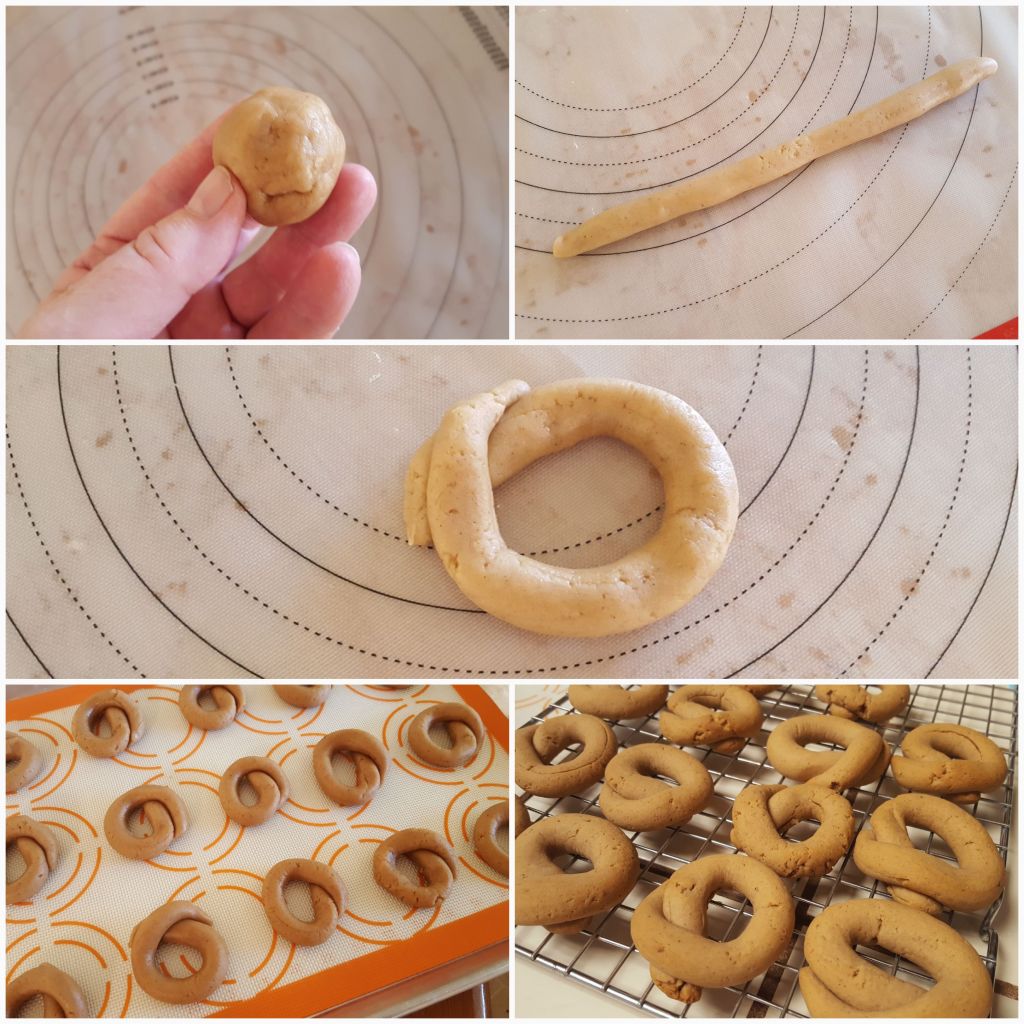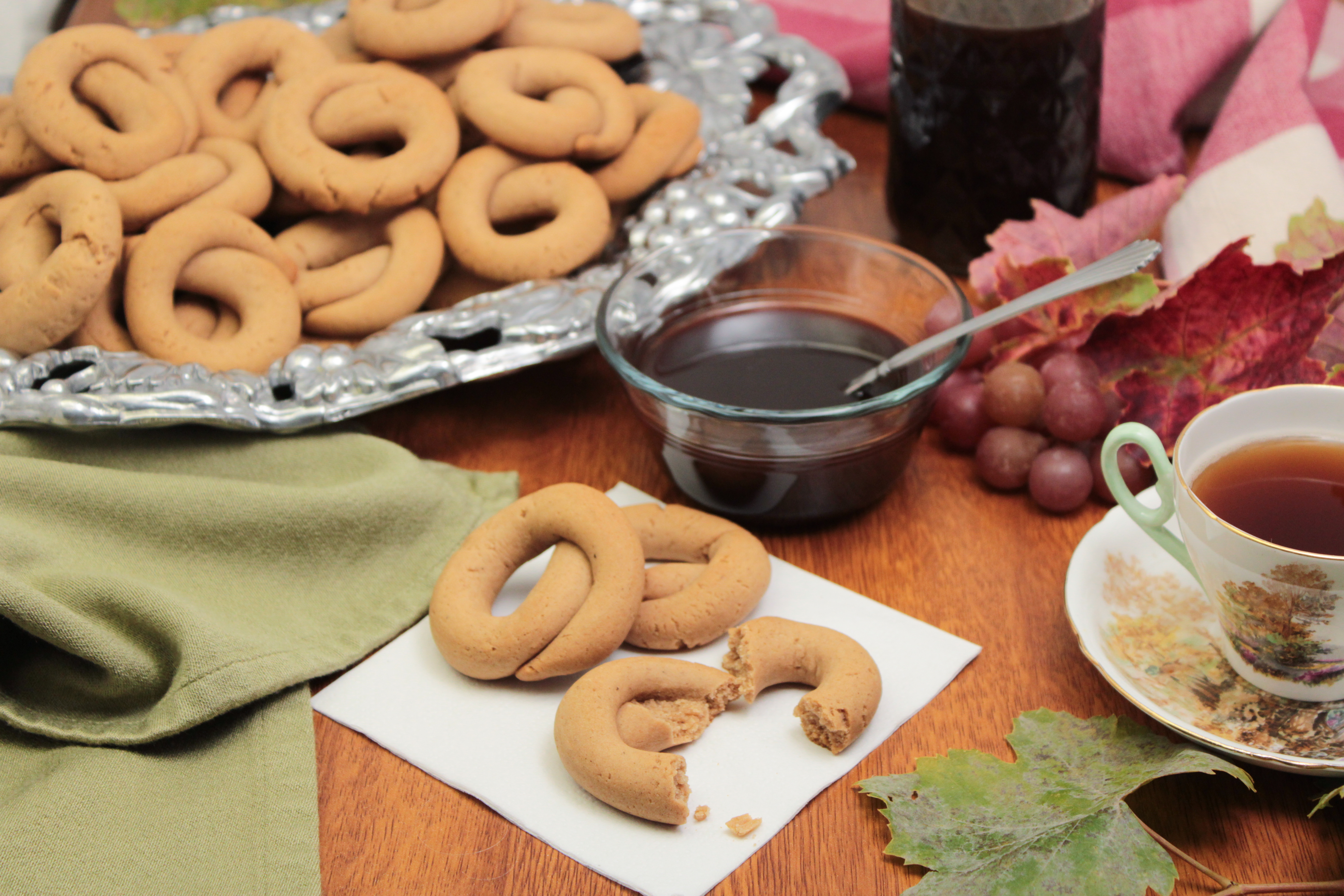
Chances are good that unless you were raised in a traditional Greek home, you have never heard of these cookies. They may not look like much, but you’ll have to trust me when I tell you that looks can be deceiving.
(All links open a new page, so you won’t lose your spot when you look around! Get information on gardening and cultural traditions, recipes, stories, and more!)
The name “moustokouloura” (moo-stoh-KOO-loo-rah) comes from the Greek word for “must”, which is the mixture of pulp and juice from crushed grapes, usually used in wine making. The “kouloura” part describes that type of cookie made, which is a firm pastry shaped in a ring. The end result is a firm cookie, flavored with warm spices like cinnamon and cloves, perfect for dunking into coffee or tea, but tender enough not to need a dunking to be enjoyed.

No, there isn’t grape goo baked into these treats (and thanks to modern machinery, no feet needed, either). Instead, they are sweetened with a cooked down syrup made from grape must called petimezi. Long before there was refined sugar, Greeks had figured out a way to make use of leftover must from wine making. By neutralizing the acidity of the must with wood ashes or even chalk from the soil (both of which create alkaline solutions), then straining and cooking it down to a thick molasses-like consistency, the must is transformed into a lightly sweet liquid that will last without any other type of preservation. Which is good, because there weren’t refrigerators back then, either. This liquid then served as a sweetener much like honey.

These cookies are typically made during the winter months after the grape harvest is done and all the petimezi made. The fact that they are egg and dairy free also make them suitable for consuming during Lenten periods when fasting from animal products is done. The timing of making petimezi and the resulting moustokouloura perfectly aligns with the Lenten period right before Christmas, and then later in the winter and early spring during Great Lent just before Pascha (Easter). Honestly, I’ll eat them any time of the year.

Some quick notes before you begin:
Petimezi is not likely something you’ll find if you don’t live in Greece or have a very well stocked Greek or Middle Eastern deli nearby. Making it is easy but time consuming (recipe here!). However, any type of fruit molasses will do or even a fruit syrup cooked down a little more to molasses consistency. Or heck, just use molasses! If the heavier flavor of molasses doesn’t suit you, you can substitute an equal amount of half molasses and half honey. Another option is to use maple syrup and cook it down to further thicken it. In other words, you have lots of other options!

The moisture content of the petimezi, or whatever substitute you may choose to use, can vary greatly. This means that you may need to adjust the amount of flour you use to get to the proper texture for the dough. Resist the temptation to add extra flour if the dough is only a little sticky. As the dough sits, more moisture gets absorbed by the flour. Adding too much flour will result in a dry dough that crumbles easily.
Keep in mind that you don’t want to overwork the dough as that will make the cookies tough. Mix just enough to get the proper amount of flour in and then let it rest for 10 to 15 minutes. This will relax the gluten in the flour and allow the moisture to be properly absorbed by the flour.
Moustokouloura (Greek Grape Molasses Cookies) Recipe

Ingredients
- 3 1/2 + cups all purpose flour (may need up to 1 cup more)
- 2 tsp. baking powder
- 1 tsp. cinnamon
- 1/2 tsp. ground cloves
- 1/2 tsp. ground allspice
- 1/2 cup petimezi (other options include molasses, 1/4 cup each molasses and honey, other fruit molasses, or fruit or maple syrup cooked down to molasses thickness)
- 1/4 cup honey (if you are substituting honey for part of the petimezi, this is additional honey needed)
- 1/4 cup water
- 1/4 cup Metaxa or brandy
- 1/2 cup olive oil (edit: this was accidentally omitted from the original recipe)
- 1 tsp. salt
Directions
- In a large bowl put the dry ingredients (flour through allspice) starting with the 3 1/2 cups flour. I measure the flour by fluffing it up with a whisk, then gently scooping into the measuring cup. Blend all the ingredients together.
- In another bowl, combine all the remaining ingredients (petimezi through salt) and mix together well. Pour the wet ingredients into the dry ingredients and gently, but thoroughly, mix together. Add additional flour, 1/4 cup at a time, until the dough is no longer sticky. It should be soft and malleable, but not dry. Cover and set aside for 10 to 15 minutes to allow the dough to rest.
- Preheat oven to 350 F. Line a baking sheet with parchment paper. Take a ball of dough about the size of an unshelled walnut and roll it out into a long “rope”, 8 to 9 inches. Coil the rope into a ring, with the ends overlapping, and tuck one end of the rope under the other. Carefully lift each kouloura onto the parchment paper, spaced an inch apart.
- Bake in the preheated oven for 15 to 20 minutes, or until firm to the touch and just a hint of brown on the surface. The lack of animal proteins will keep them from browning much. Allow the kouloura to cool a little to firm up before transferring them onto a cooling rack. Once cooled, they can be stored in an air tight container for as long as people manage not to eat them all! Enjoy!


We had these in the summer and they are very yummy! Thanks for the recipe!
LikeLiked by 1 person
You’re very welcome! Yes, they are delicious any time of year!😊
LikeLiked by 1 person
No oil? That makes them so hard otherwise??
LikeLiked by 1 person
Traditional moustokouloura don’t have added oil or butter. They are a firm cookie, but they won’t be hard if you don’t use too much flour or overwork the dough. 🙂
LikeLike
Oh my goodness!! I went back to look at my pictures and realized you are absolutely right, there should be oil! It’s been a while since I last made them and knew there was no butter, but I just realized I left out the oil in the recipe. You can see that I added it in the pics, but forgot to list it in the recipe. So sorry for the confusion!!
LikeLike
So if I’m using 1/2 C. petimezi, I still need to add 1/4 C. honey as well? Your comment about using half petimezi and half honey has me perplexed so thought I’d ask! Thanks
LikeLiked by 1 person
Yes, both sweeteners are called for in the recipe. The comment about the half petimezi and other substitutions was to make it easier to make the cookies if petimezi wasn’t available, but the 1/4 cup of honey is still needed.
LikeLike